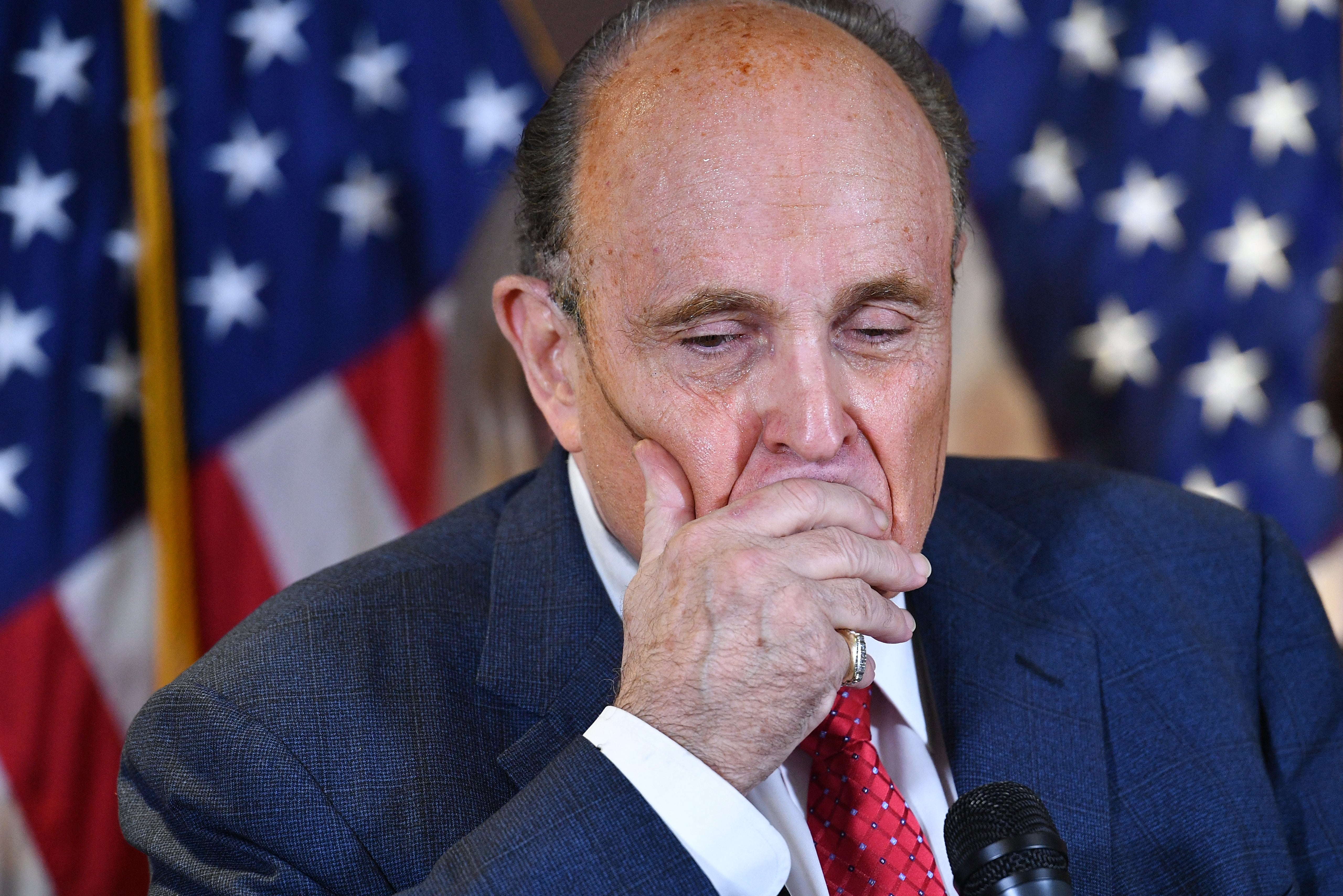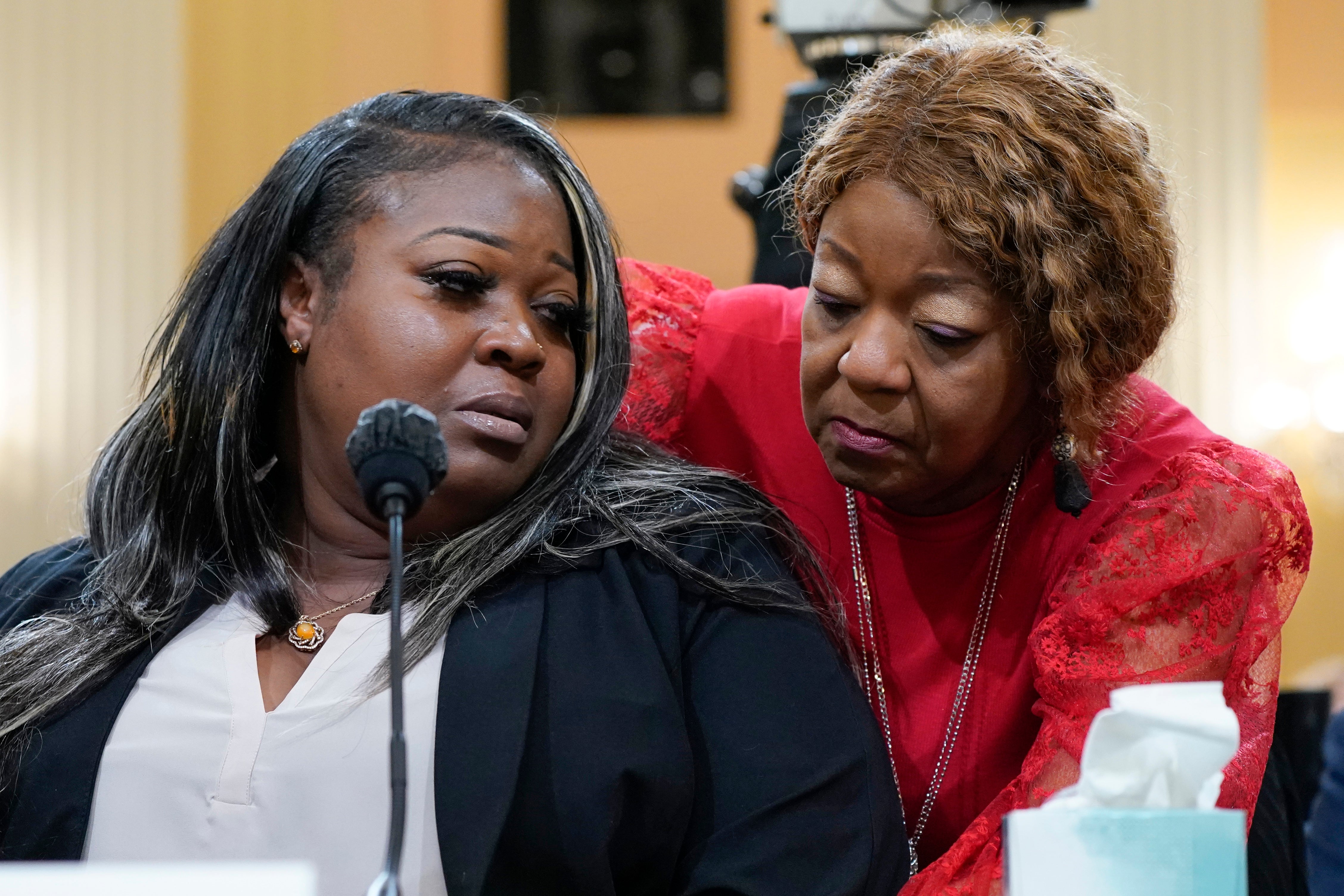Giuliani’s bankruptcy case was thrown out. Now he has to fight his debts in court
The disgraced former mayor can appeal his defamation verdict, but other debtors will also start trying to collect
Your support helps us to tell the story
From reproductive rights to climate change to Big Tech, The Independent is on the ground when the story is developing. Whether it's investigating the financials of Elon Musk's pro-Trump PAC or producing our latest documentary, 'The A Word', which shines a light on the American women fighting for reproductive rights, we know how important it is to parse out the facts from the messaging.
At such a critical moment in US history, we need reporters on the ground. Your donation allows us to keep sending journalists to speak to both sides of the story.
The Independent is trusted by Americans across the entire political spectrum. And unlike many other quality news outlets, we choose not to lock Americans out of our reporting and analysis with paywalls. We believe quality journalism should be available to everyone, paid for by those who can afford it.
Your support makes all the difference.A federal judge has dismissed Rudy Giuliani’s Chapter 11 bankruptcy after an eight-month court battle trying to get to the bottom of his financial state.
The disgraced former New York City mayor filed for bankruptcy protection after a jury ordered him to pay two Georgia election workers nearly $150m for defaming them in the wake of the 2020 presidential election.
Those women are not alone. Giuliani has also been sued by voting machine companies and a former aide who accused him of sexual misconduct, among others.
The end of his bankruptcy case does not let him off the hook for his mountain of debts. In all, he stands to owe more than $153m.
His creditors will now be able to rely on the courts to collect what they’re owed, including pressing for court orders to seize his properties and other assets.
Judge Sean Lane’s 22-page on July 12 order also restricts Giuliani from seeking bankruptcy protection for one year.
The order will allow election workers Ruby Freeman and Shaye Moss to continue to try to collect on their defamation verdict, which has effectively been frozen during bankruptcy proceedings.
Giuliani’s attorneys believe ending his bankruptcy case will give him the best shot at appealing.
But under the order from the judge overseeing the defamation case, Giuliani will have to post a $148m bond to begin the process of an appeal that would block efforts from Freeman and Moss to start collecting on that judgment. It is unclear whether Giuliani has the cash or the means to do that.

Giuliani listed nearly $153m in existing or potential debts and assets north of $11m at the time of his bankruptcy filing, though his actual net worth is unclear. His properties include a Manhattan apartment that was on the market for $6m and a Florida condo valued at roughly $3.5m.
His spending habits are also unclear. He was initially expected to adhere to a monthly austerity budget, with monthly expenses totaling $43,000, though he appeared to blow past that amount — he spent nearly $120,000 in January, according to court documents. His legal expenses also were to be drawn from fundraising accounts that he couldn’t touch otherwise.
“Mayor Rudy Giuliani was denied the ability to appeal the grossly unfair $148m judgment in Washington, DC during this proceeding,” according to a statement from his spokesperson Ted Goodman.
“This whole bankruptcy case was burdened with many of the same voluminous and overly broad discovery requests and other actions — including regular leaks of information — intended to harm the mayor and destroy his businesses,” he added.
Goodman said that he is “confident that — in the long run — our system of justice will be restored and the mayor will be totally vindicated.”
The end of the bankruptcy case also opens the door for his other creditors to pursue legal remedies to collect what they say they are owed.
Other lawsuits against Giuliani from the group of so-called “unsecured creditors” whose cases have not concluded have been on pause during his bankruptcy proceedings.
Those stays will now be lifted, allowing election companies Dominion Voting Systems and Smartmatic to continue their cases against him.
A long-running case from former Giuliani associate Noelle Dunpy alleging sexual harassment and wage theft will also be allowed to continue.
The cases add to the growing legal fallout facing Giuliani in the aftermath of the 2020 election,
Giuliani’s incoming financial battles join a growing number of cases against him, including criminal charges in Georgia and Arizona for his efforts to reverse Donald Trump’s election loss in those states. He has pleaded not guilty in both cases.
He also is an unindicted co-conspirator in a federal criminal case surrounding Trump’s attempts to overturn the results of the 2020 election, and he was recently abruptly fired from the radio station that hosts his broadcasts and then disbarred in the state of New York.

Giuliani’s creditors have accused the former mayor of using the byzantine court proceedings to hide details about his assets and avoid paying his debts.
In his order on July 12, Judge Lane cited Giuliani’s “continued failure to meet his reporting obligations and provide the financial transparency required of a debtor in possession” and called his behavior “troubling.”
Attorneys for the creditors sought a trustee to oversee his finances, arguing it was the only way to get an accurate picture of his assets after months of failed and incomplete attempts.
Judge Lane rejected that proposal, stating that there is “little reason to conclude that Mr Giuliani’s uncooperative conduct will change” even with a court-ordered trustee he would have to report to.
“Mr Giuliani has failed to provide an accurate and complete picture of his financial affairs in the six months that this case has been pending,” the judge wrote. “Transparency into Mr. Giuliani’s finances has proven to be an elusive goal.”

Join our commenting forum
Join thought-provoking conversations, follow other Independent readers and see their replies
Comments